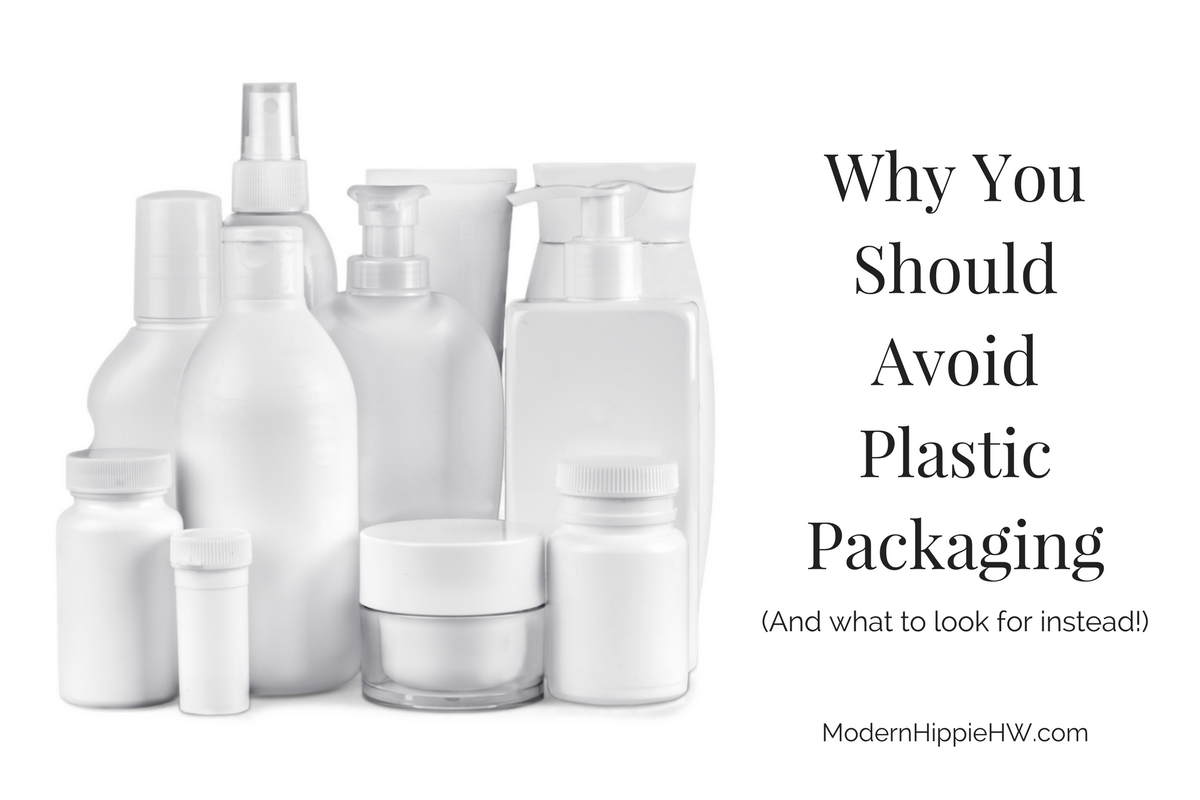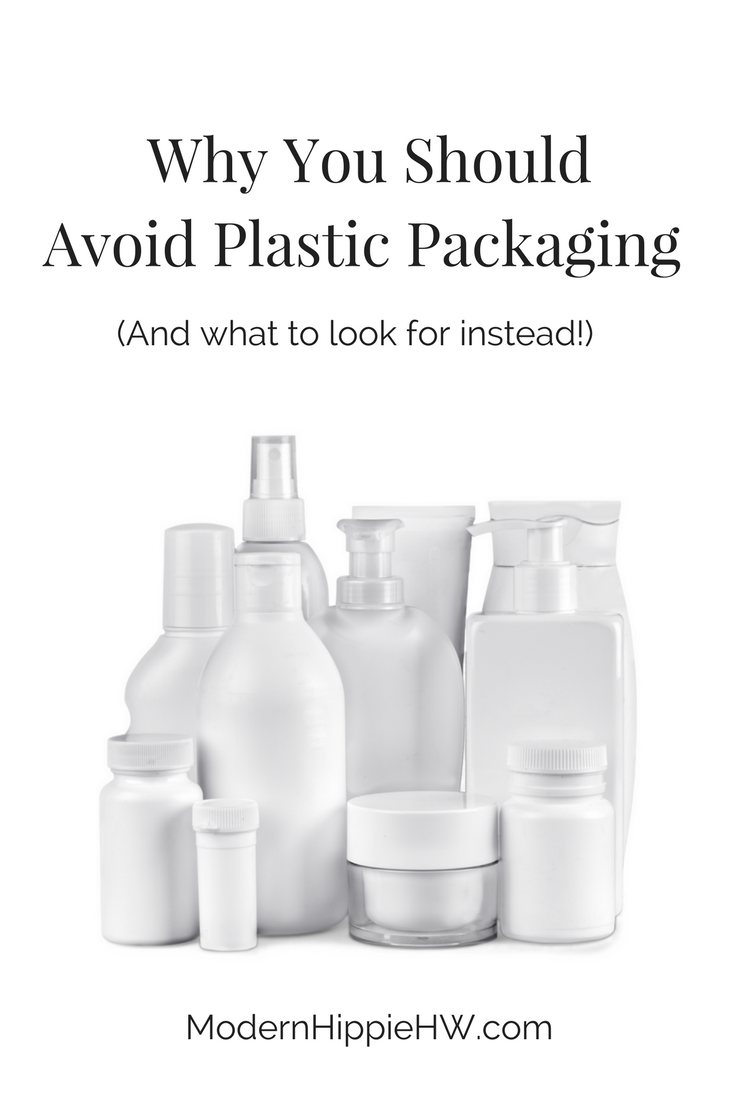Why You Should Avoid Plastic Packaging (And what to look for instead)
 The 'birth of the modern plastics era' came in 1907 when the first synthetic plastic, derived from fossil fuels rather than animals or plants, was created. The rapid growth of the new, plastics industry was driven by World War II, during which plastic was widely used in military equipment.When the War was over, the industry had to get creative in order to keep production running and that's when they turned their attention to the mass, consumer goods market and started producing products like Tupperware.At that time, plastic was seen as glamorous and transformative - it didn't break like glass, or dent like metal, and it seemed to last forever. A perceived advantage, which we now realise is an extreme disadvantage.
The 'birth of the modern plastics era' came in 1907 when the first synthetic plastic, derived from fossil fuels rather than animals or plants, was created. The rapid growth of the new, plastics industry was driven by World War II, during which plastic was widely used in military equipment.When the War was over, the industry had to get creative in order to keep production running and that's when they turned their attention to the mass, consumer goods market and started producing products like Tupperware.At that time, plastic was seen as glamorous and transformative - it didn't break like glass, or dent like metal, and it seemed to last forever. A perceived advantage, which we now realise is an extreme disadvantage.
Here are two reasons you should avoid plastic packaging:
1. The Environment
Ever heard of the Great Pacific Garbage Patch (GPGP)? It is a swirling collection of plastic, floating in the waters between Hawaii and California and was recently reported to be 16 times larger than once thought, at a total of 1.6 million square kilometres. That is larger than the entire province of Quebec! This collection of waste is made up of 92% large plastics and 8% microplastics and has been pulled together by the ocean currents, making it one of the largest built-up areas of plastic, in the world.Unfortunately, this phenomenon is not unique. Debris collects like this anywhere that ocean, wind and the Earth's rotation create ocean gyres. Although some of the plastic debris does come from ships, most of it comes from land and is washed out to see via rivers, wind and runoff.Weathering and disintegration then lead to a slow break down of plastics into smaller and smaller particles, until they become microplastics at less than 5mm in size. As the particles get smaller, the likelihood of a wider range of marine life ingesting them increases. Recently, a dead sperm whale washed up in Spain with 29 kilograms of plastic in its stomach. Whether its nano-zooplanktons or whales ingesting these plastics, the common problem is that while they can be ingested, they are not absorbed or digested as these organisms' digestive systems cannot break down synthetic polymers.Some of the plastics in the GPGP date all the way back to the '70's, 80's, and 90's which demonstrates the enduring nature of plastic. And it doesn't just stick around in our oceans and waterways - there are countless landfills full of plastic that will never biodegrade.We currently lack any way of adequately addressing our over abundance of plastic waste - while recycling makes us feel like we're 'doing our part', the reality is that lack of profitable markets for recycled materials often means that a lot of our plastic doesn't get recycled.The real solution is to reduce our use of plastics in the first place:
- Avoid products with plastic packaging
- Do not use single use plastics such as straws or bags
- Avoid clothing made with plastic microfibres
- Avoid personal care products that include microbeads - which are just microplastics!
- Choose containers or packaging that are more likely to be recycled - such as aluminum, paper or cardboard
2. Your Health
A major building block of plastics is Bisphenol A (BPA), a chemical that was first synthesised in 1891. This compound is cheap, lightweight and shatterproof, and routinely found in plastic cups, water and baby bottles. Plastics containing BPA are known to leach, particularly when exposed to heat such as through microwaving, storing hot foods or liquids, or when hand washed or washed in a dishwasher using hot water. A bottle doesn't need to get warm to leach BPA, however - a study conducted in 2009 found that participants who drank cold liquids for a week from hard-plastic drinking bottles and baby bottles had tw0-thirds more BPA in their urine.Since as early as 1936 BPA has been identified as an endocrine disruptor and known to mimic estrogen, binding to the same receptors throughout the body as natural hormone does. Studies have shown that it can also contribute to cardiovascular problems, promote human breast cancer cell growth, affect puberty and ovulaton, and may ultimately lead to infertility.
So, what should you look for instead?
It's better for you and for the environment if you avoid plastic and look for packaging that is made from materials that are more likely to be recycled, like aluminum, glass and cardboard.At Modern Hippie® we use glass packaging because:
- It can be re-used repeatedly
- It is 100% recyclable
- It is made from natural materials
- There is no chance for harmful chemicals to leach
Fossil fuels and their derivatives, such as plastic, are deeply ingrained in our society and moving away from them won't happen overnight. However, one way we can signal we are ready for a change is by voting with our dollars - ie. don't purchase products that come with tons of plastic packaging!

